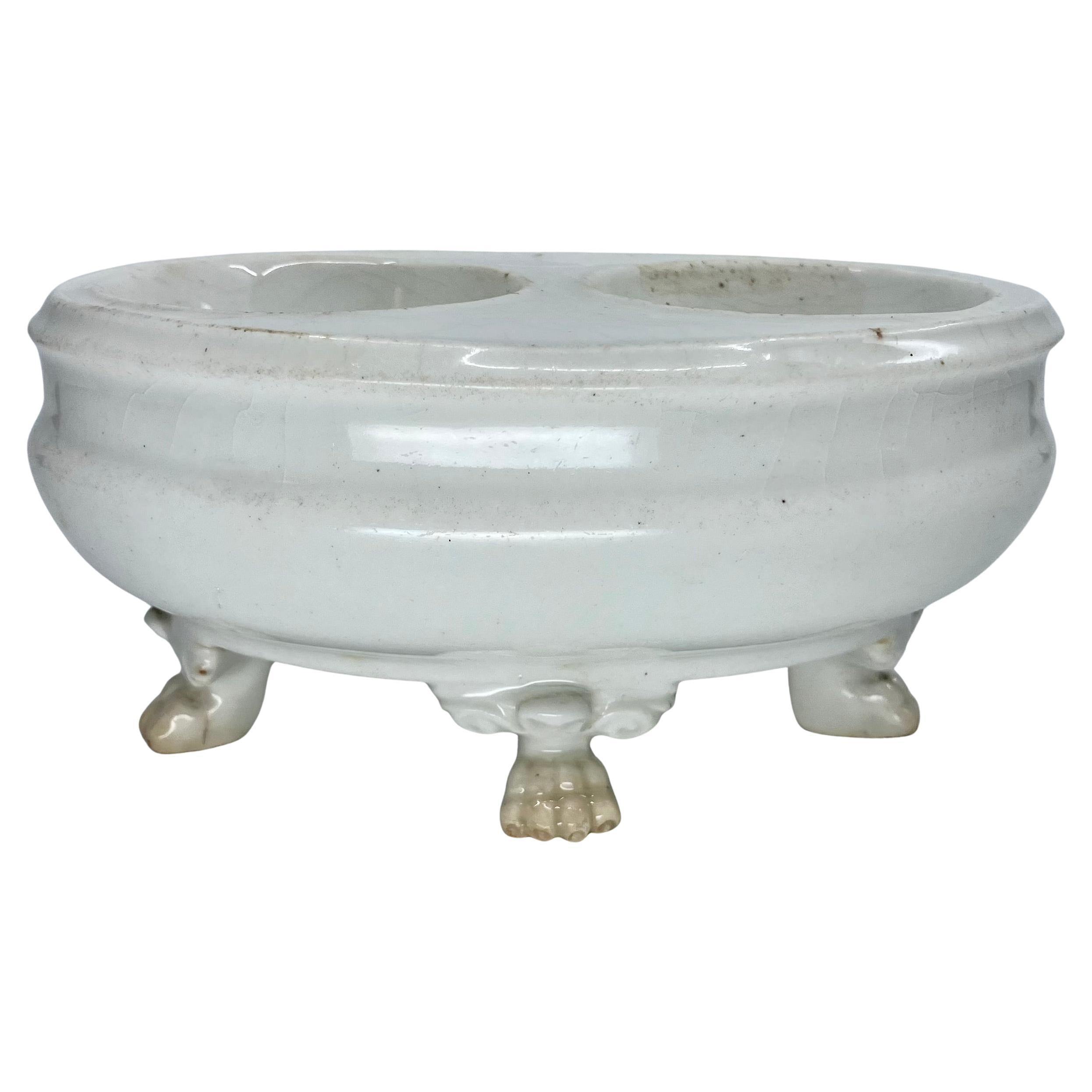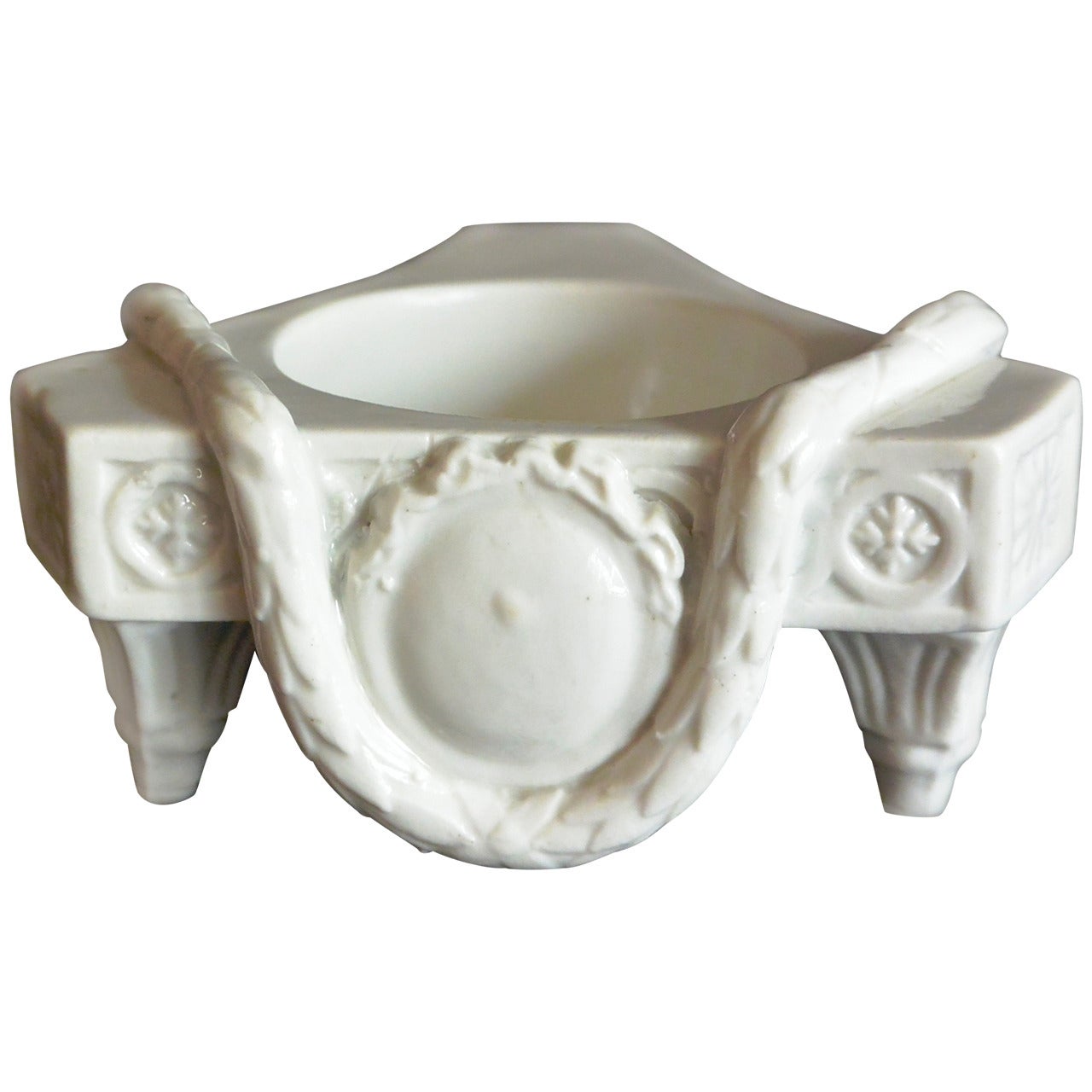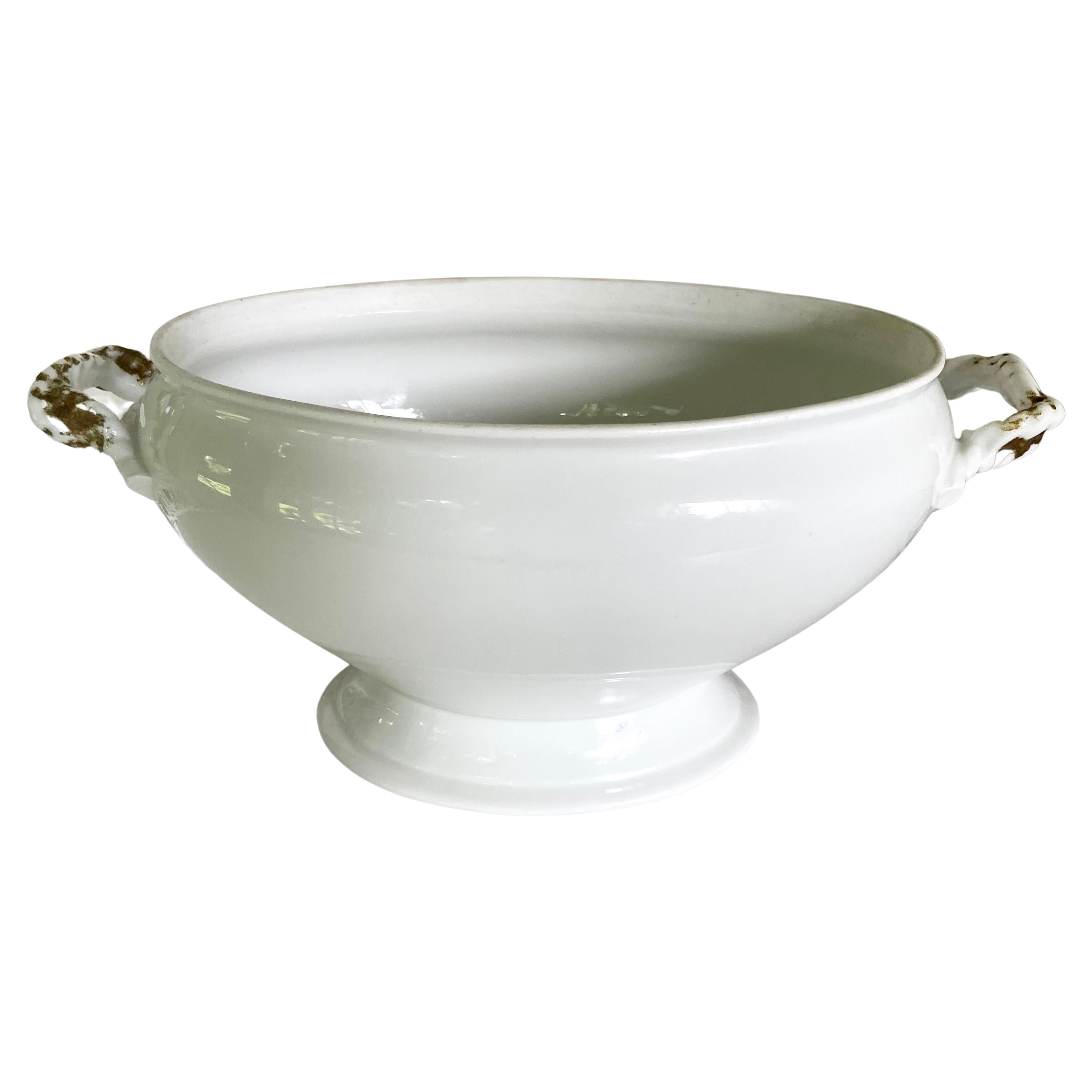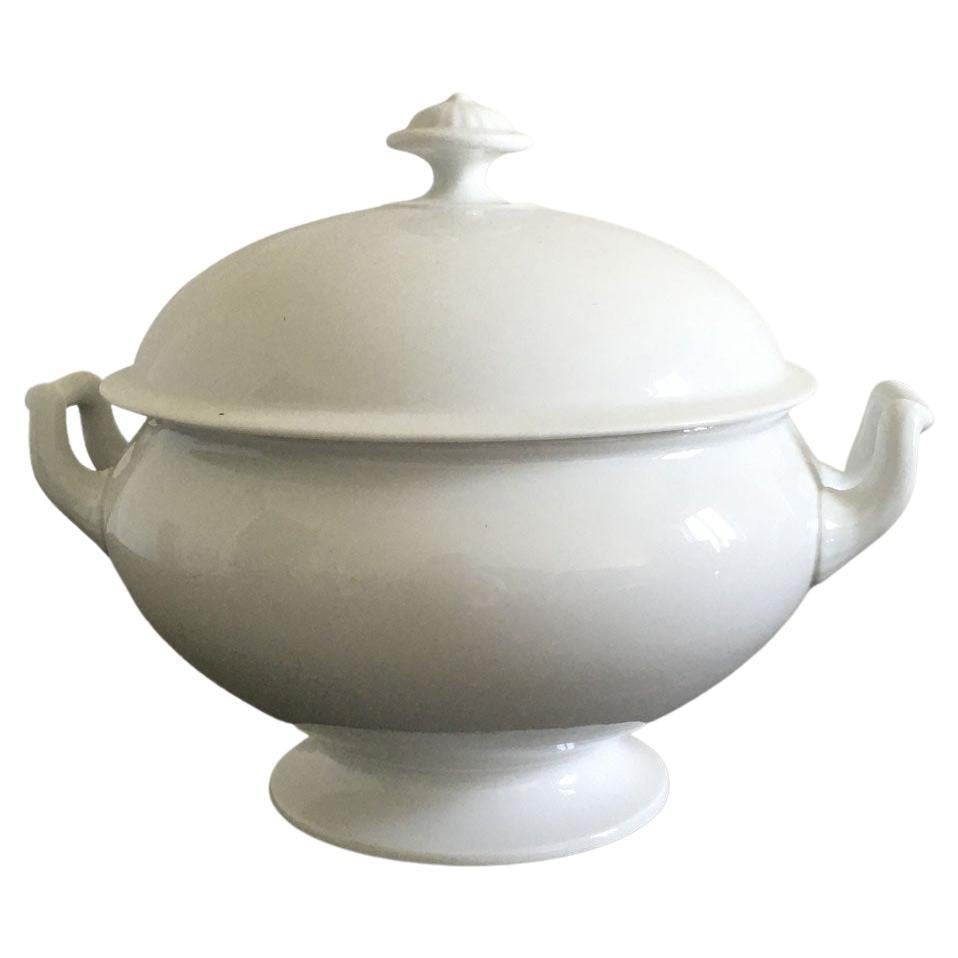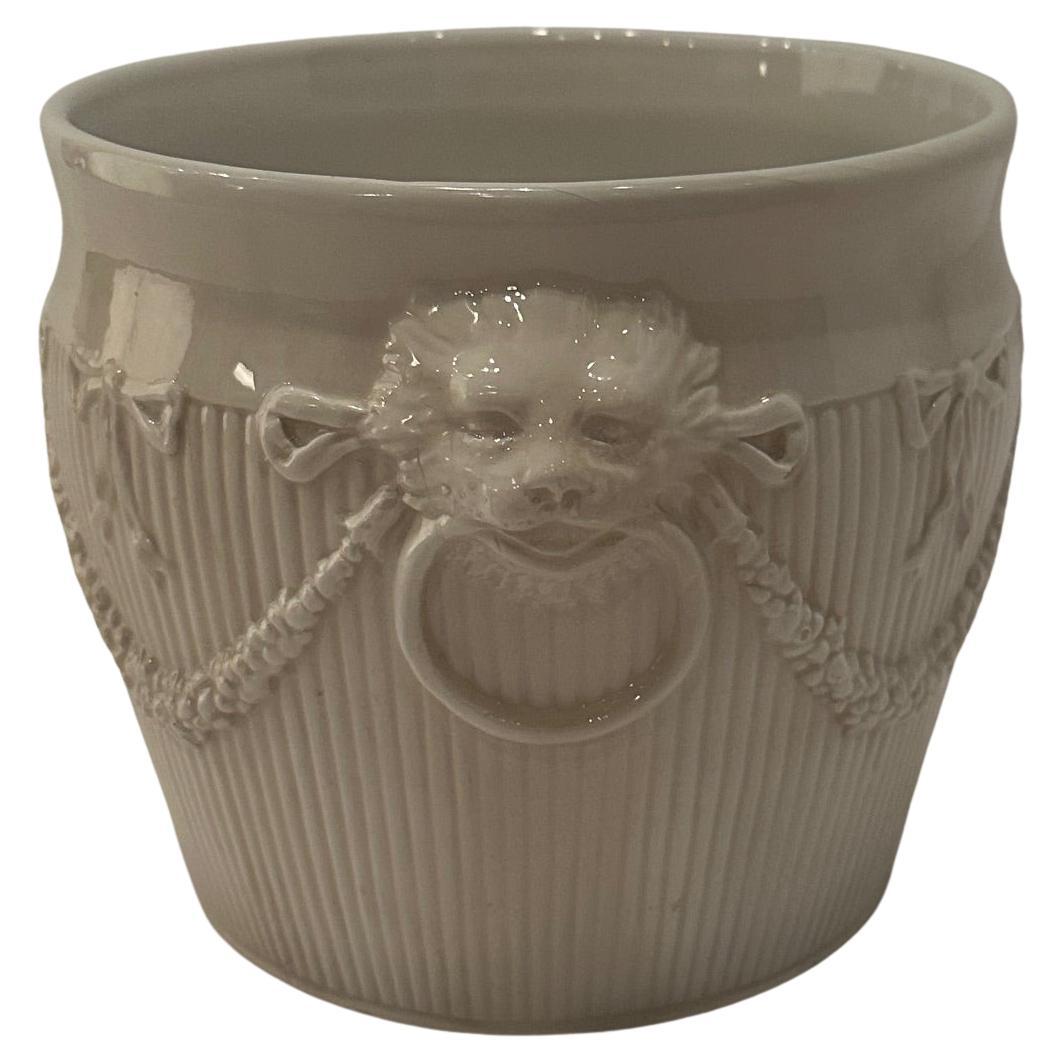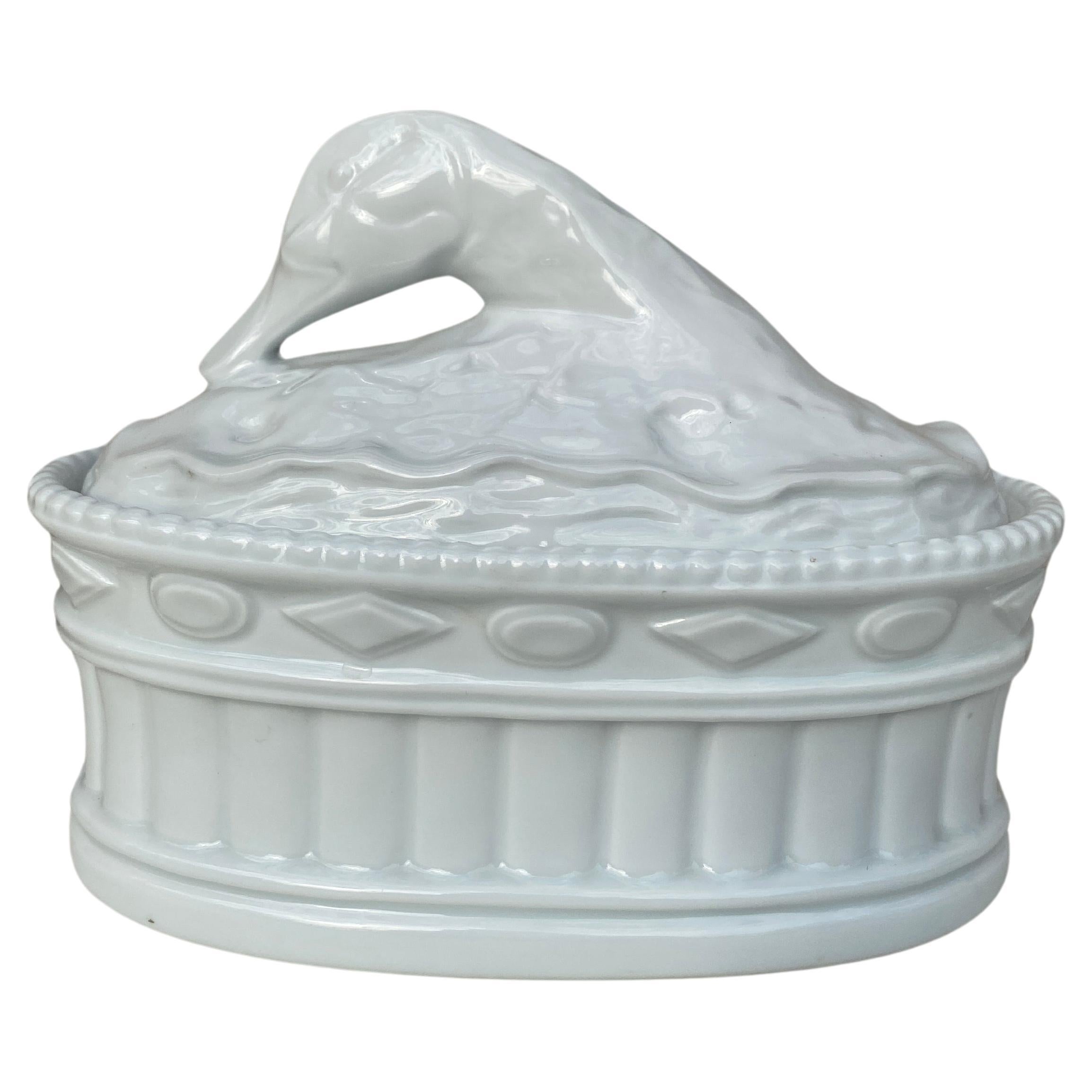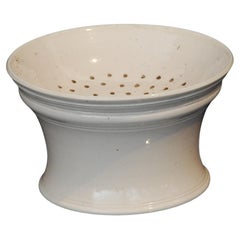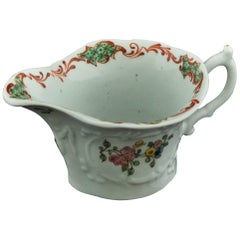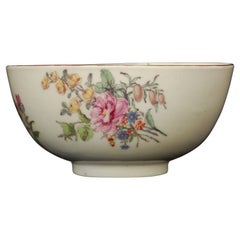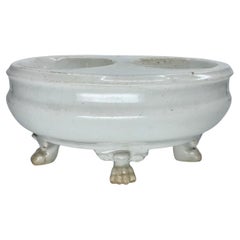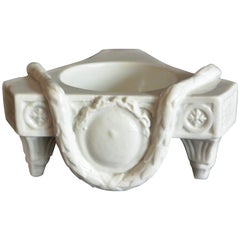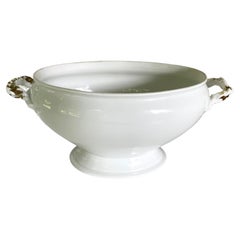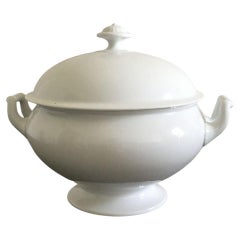Items Similar to Cauldron Salt Cellar, in the White, Bow Porcelain Factory, circa 1752
Want more images or videos?
Request additional images or videos from the seller
1 of 5
Cauldron Salt Cellar, in the White, Bow Porcelain Factory, circa 1752
$1,750
$2,50030% Off
£1,319.95
£1,885.6530% Off
€1,524.56
€2,177.9430% Off
CA$2,451.87
CA$3,502.6730% Off
A$2,726.34
A$3,894.7730% Off
CHF 1,427.29
CHF 2,038.9830% Off
MX$33,302.75
MX$47,575.3530% Off
NOK 17,935.28
NOK 25,621.8330% Off
SEK 16,871.72
SEK 24,102.4630% Off
DKK 11,380.72
DKK 16,258.1730% Off
About the Item
A cauldron-shaped salt: a direct copy of a contemporary (Georgian) silver shape in soft-paste porcelain.
Provenance: Taylor collection.
- Creator:Bow Porcelain (Maker)
- Dimensions:Height: 1 in (2.54 cm)Diameter: 5.3 in (13.47 cm)
- Style:Neoclassical (Of the Period)
- Materials and Techniques:
- Place of Origin:
- Period:
- Date of Manufacture:circa 1752
- Condition:
- Seller Location:Melbourne, AU
- Reference Number:Seller: 48281stDibs: LU3151310120193
About the Seller
5.0
Vetted Professional Seller
Every seller passes strict standards for authenticity and reliability
Established in 2005
1stDibs seller since 2017
79 sales on 1stDibs
Typical response time: <1 hour
- ShippingRetrieving quote...Shipping from: Melbourne, Australia
- Return Policy
Authenticity Guarantee
In the unlikely event there’s an issue with an item’s authenticity, contact us within 1 year for a full refund. DetailsMoney-Back Guarantee
If your item is not as described, is damaged in transit, or does not arrive, contact us within 7 days for a full refund. Details24-Hour Cancellation
You have a 24-hour grace period in which to reconsider your purchase, with no questions asked.Vetted Professional Sellers
Our world-class sellers must adhere to strict standards for service and quality, maintaining the integrity of our listings.Price-Match Guarantee
If you find that a seller listed the same item for a lower price elsewhere, we’ll match it.Trusted Global Delivery
Our best-in-class carrier network provides specialized shipping options worldwide, including custom delivery.More From This Seller
View AllSaltglaze Pounce Pot, English, circa 1750
Located in Melbourne, Victoria
A charming pounce pot, or sander, in sale-glazed earthenware. Unusually good condition. These were used to sprinkle pounce on writing paper; pounce was powd...
Category
Antique Mid-18th Century English Neoclassical Pottery
Materials
Stoneware
Early Cream Boat, Worcester, circa 1753
By Bow Porcelain
Located in Melbourne, Victoria
A small, early boat of rare oval form, the more usual being the hexagonal.
Appealingly naïve polychrome decoration of the period, possibly done outside the factory at one of the enamelling works.
The early Worcester...
Category
Antique Mid-18th Century English Neoclassical Porcelain
Materials
Porcelain
Waste Bowl, Chelsea, circa 1755
By Chelsea Porcelain
Located in Melbourne, Victoria
An unusual waste bowl (sometimes called a slop bowl) in soft-paste porcelain, decorated with typical Chelsea sprigs and bunches of flowers.
One of the most...
Category
Antique Mid-18th Century English Neoclassical Porcelain
Materials
Porcelain
Decorative Basket, Bow Porcelain Factory, circa 1760
By Bow Porcelain
Located in Melbourne, Victoria
A pierced basket standing on a well-formed rococo base. Perhaps for potpourri, although the internal decoration suggests another use. We think probably oranges, chestnuts, etc.
Pr...
Category
Antique Mid-18th Century English Rococo Figurative Sculptures
Materials
Porcelain
$4,060 Sale Price
30% Off
Soup Tureen, Kakiemon Decoration, Bow Porcelain Factory, circa 1755
By Bow Porcelain
Located in Melbourne, Victoria
Oval tureen and cover, decorated after the Kakiemon in the two quail pattern; the crabstock handles and masks are interesting features. The tureen has had a rather unhappy life, appa...
Category
Antique Mid-18th Century English Japonisme Porcelain
Materials
Porcelain
Early Bow Porcelain Pickle Dish, circa 1748
By Bow Porcelain
Located in Melbourne, Victoria
In the early ‘mushroom grey’ body, probably made by hand; decorated with some very good flower painting.
Provenance: Taylor Collection; Simon Spero 2007.
Category
Antique Mid-18th Century English Neoclassical Porcelain
Materials
Porcelain
You May Also Like
Empire White Porcelain Salt and Pepper
Located in New York, NY
Empire white porcelain salt and pepper. Antique Naples neoclassical porcelain salt of ovoid bath form with double concave circular receptacles for salt...
Category
Antique Early 19th Century Italian Neoclassical Porcelain
Materials
Porcelain
Neoclassical White Porcelain Salt Dish
By Wallendorf
Located in New York, NY
Neoclassical white porcelain salt dish. A fine transitional Louis XVI Wallendorf white porcelain salt in perfect condition, Germany, circa 1780.
Dimension: 4...
Category
Antique Late 18th Century German Neoclassical Porcelain
Materials
Porcelain
Vintage White Porcelain Limoges Nautical Cachepot / Tureen
By Limoges
Located in New York, NY
Vintage white porcelain Limoges nautical cachepot / tureen. Oblong shaped footed tureen with gilt rope handles perfect for your shell collections. Underg...
Category
20th Century French Soup Tureens
Materials
Porcelain
Italy Early 19th Century White Porcelain Soup Bowl in Regency Style
Located in Brescia, IT
This refined white porcelain soup bowl, is an exquisite piece that epitomized the elegant style of the Regency era.
Its perfect proportion, its delicate pair of handles, its simple l...
Category
Antique Early 19th Century Italian Regency Serving Bowls
Materials
Porcelain
Elegant White Italian Ceramic Planter
Located in Hopewell, NJ
Italian white ceramic planter with lion garland and bow motif.
Made for Bloomingdale’s , Italy
Category
Vintage 1960s Italian Regency Ceramics
Materials
Ceramic
French Trompe L'oeil White Porcelain Duck Pâté Tureen
Located in Austin, TX
French Trompe L'oeil White Porcelain Duck Pâté Tureen.
Category
Vintage 1960s French Rustic Serving Pieces
Materials
Porcelain
More Ways To Browse
Antique Soft Paste
Antique Salt Cellars
Soft Paste Antique Porcelain
Antique Silver Salt Cellars
18th Century Bow Porcelain
Antique Glass Salt Cellars
Porcelain Salt Cellar
Antique Porcelain Salt Cellars
Gold Cup
Hand Painted Rose
Japanese Antique Silver
German Cross
Large Porcelain Plates
German Crown
Japanese Vintage Porcelain
Glass Insects
Hungary Painted Furniture
Large Chinese Plates
